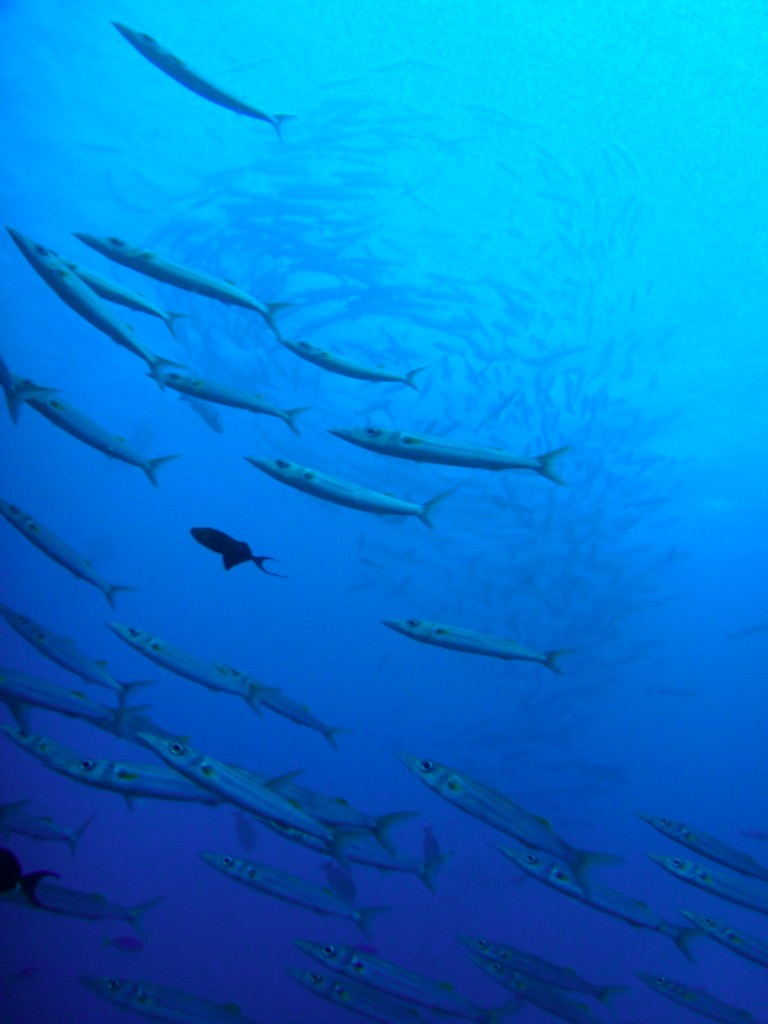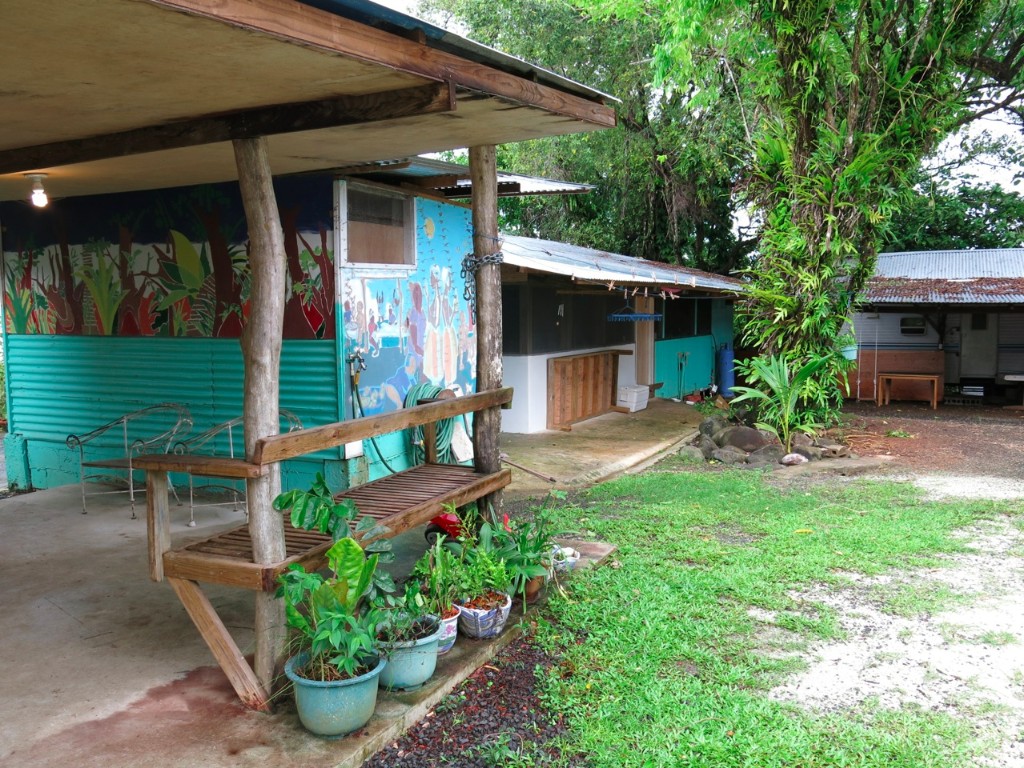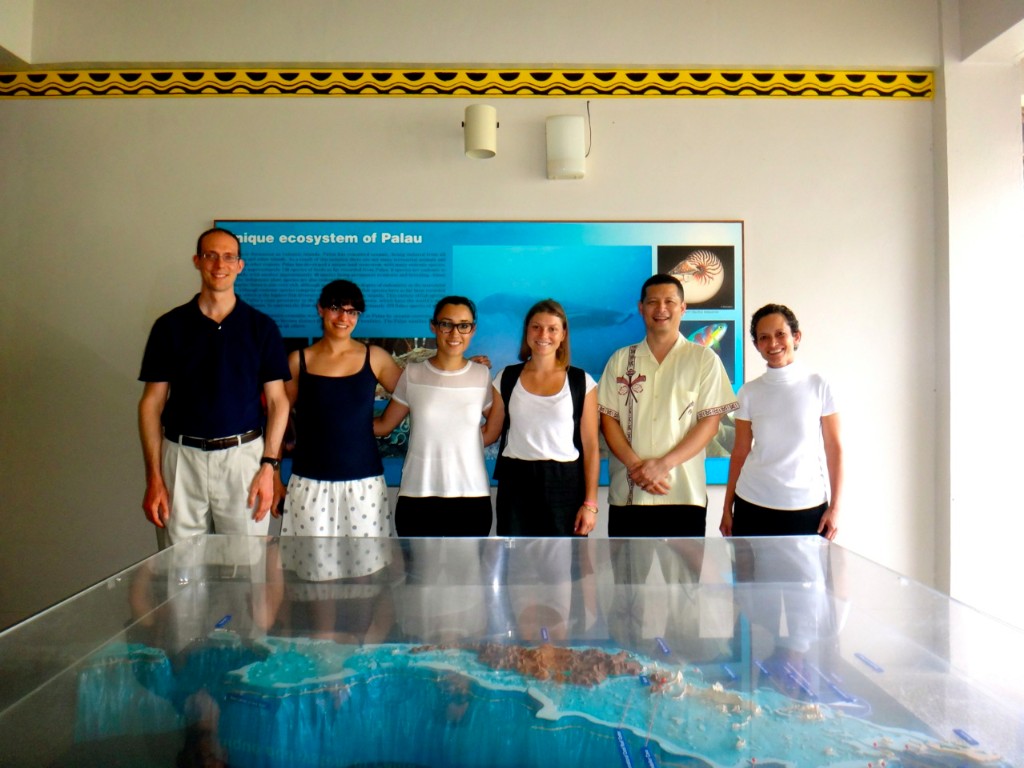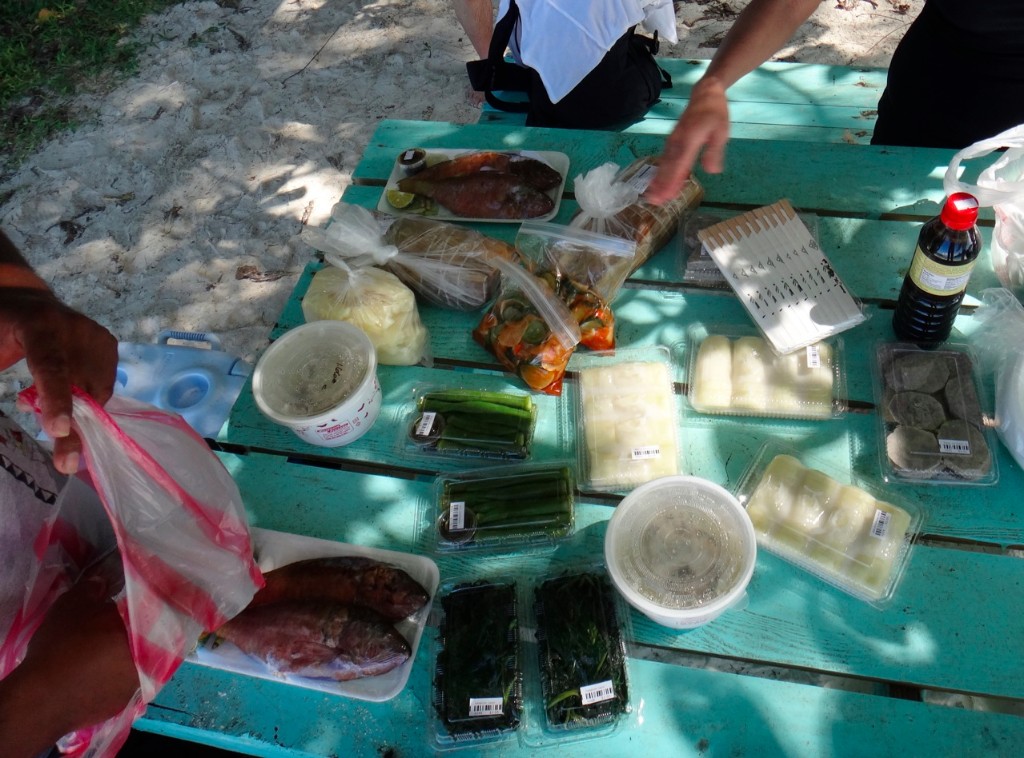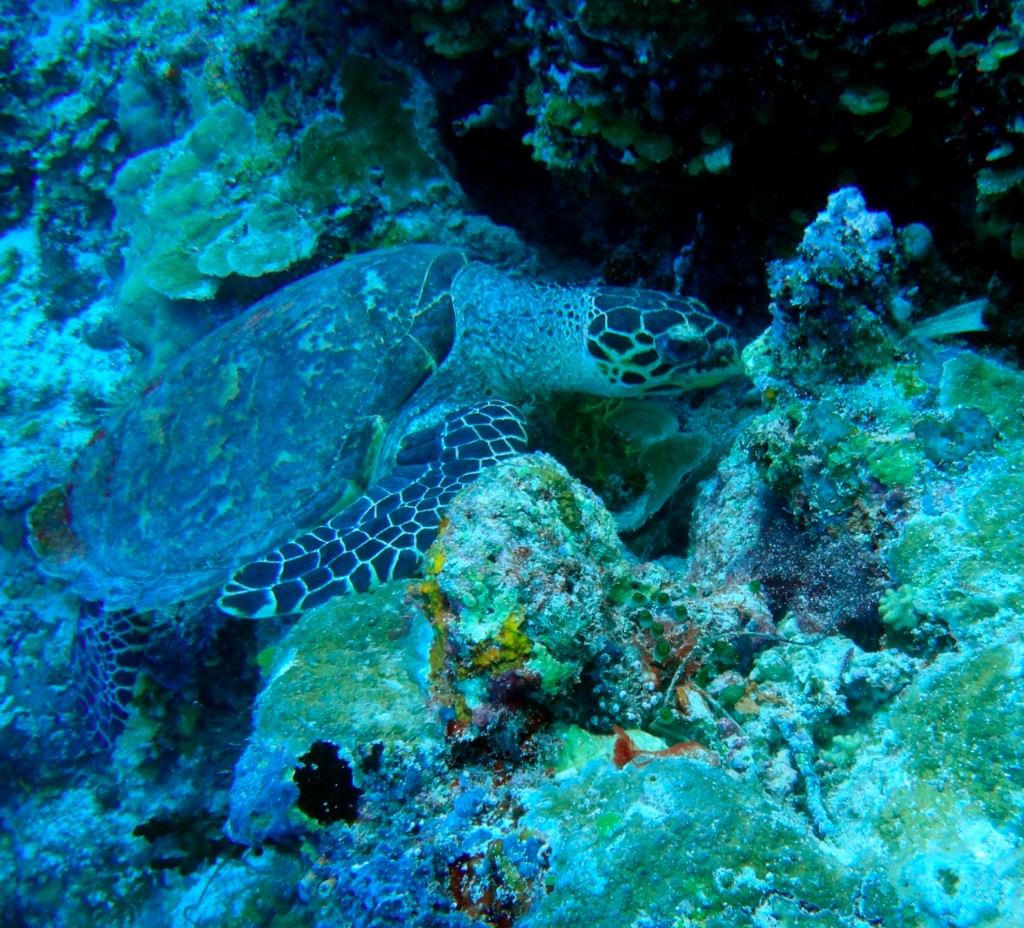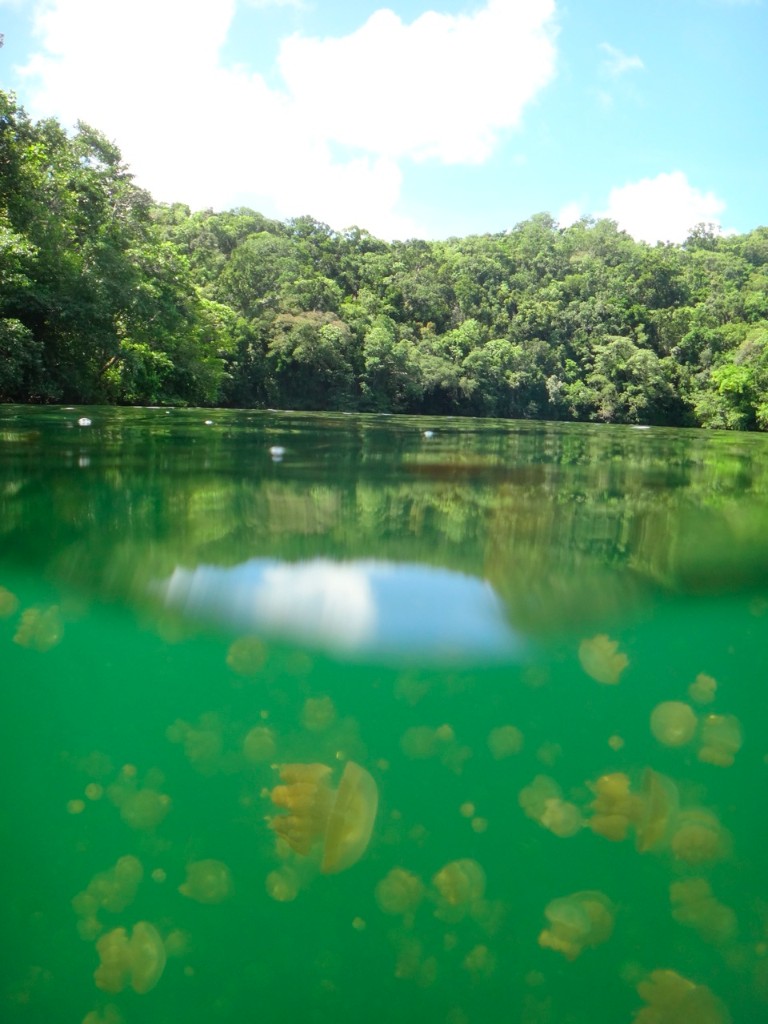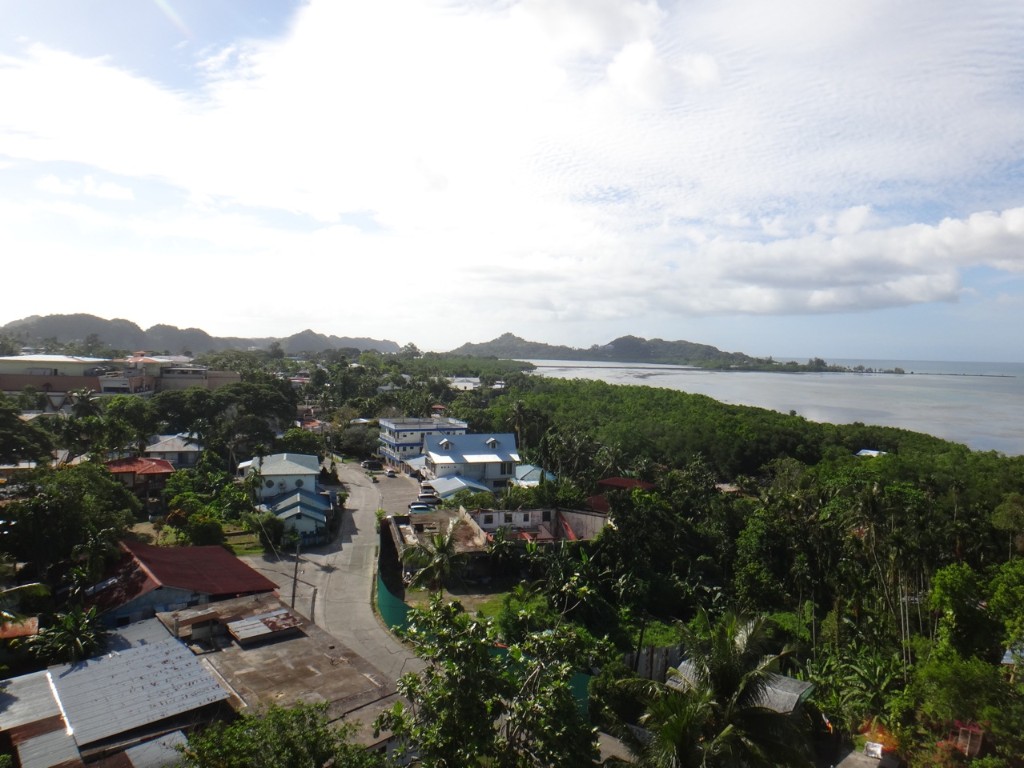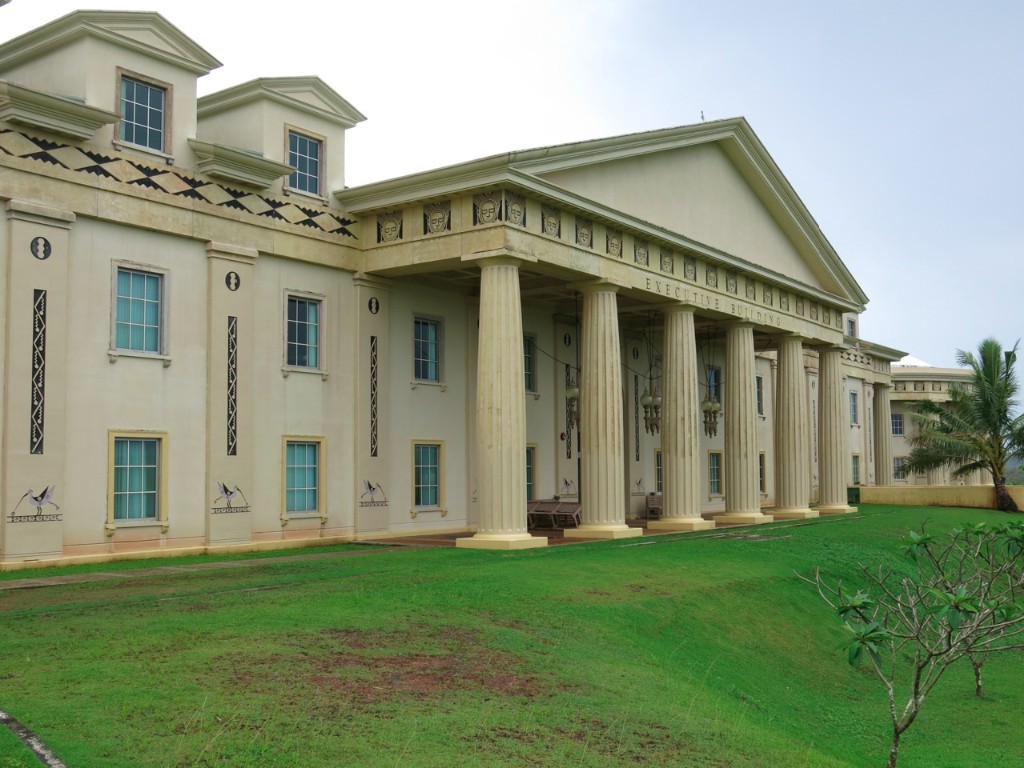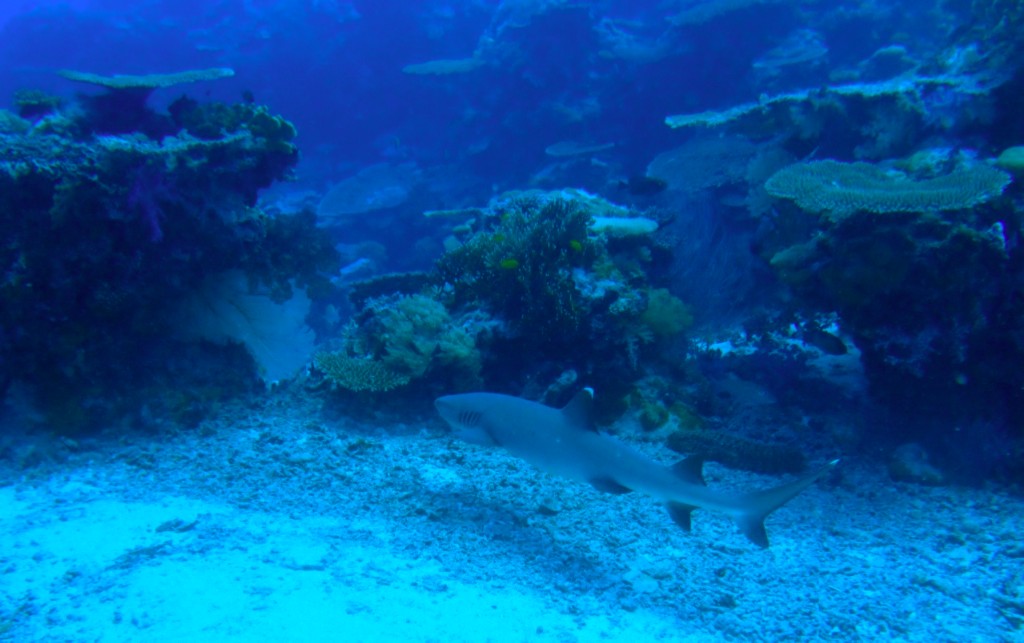During the first two weeks of 2014, I made the long journey to the Republic of Palau in the western Pacific with a team of three other Yale graduate students to learn firsthand about the challenges of conservation in Small Island Developing States (SIDS). SIDS are a group of developing island countries that tend to vote as a block in the United Nations, such as Palau, Samoa, the Marshall Islands and Mauritius. Historically they have been strong advocates for action on climate change, as they stand to literally lose their island countries to sea level rise.
Last fall, Rob Fetter, Maria Rojas, Connie Vogelmann and I—also known as the Yale Ocean Alliance—worked with Stuart Beck, Palau’s Ambassador of the Oceans and Seas, supporting a stand alone Oceans and Seas Sustainable Development Goal (SDG) at the UN. We were eager to explore the potential reach of sustainable development on the ground where it would matter most: in the biological hotspots of the world, many of them governed by SIDS.
Tulik Beck, the Ambassador’s wife, graciously hosted us at her family’s home in Koror and introduced us to officials at all levels of government, including President Tommy Remengesau, Jr. Tulik also introduced us to local NGO leaders, fishermen, and scientists. The Yale team was astounded by Tulik’s prowess at securing meetings; she would giggle and humbly claim that nearly everybody was her “cousin” or “uncle.” We were treated to local Palauan food, history and political lessons, and recreation while not in meetings and we were lucky enough to explore the Rock Islands and many of the world famous dive sites.
Over the course of the two weeks we fell into the hypnotic rhythm of tropical living, but all the while we learned how traditional power, based on a mostly matriarchal system, interplays with the official democratic power. We tried to understand the conflict between conservation, tourism and traditional practices. With a population of only 17,000, Palau—a nation that kick-started the Micronesian Challenge, championed the World’s First Shark Sanctuary, and recently announced its intention to close its waters to commercial fishing—has a limited capacity to efficiently patrol and enforce its laws.
Palau is not sitting around letting the overwhelming challenges of marine conservation slow them down. They are exploring the use of drones for patrolling their waters, looking for ways to increase the resilience of their coral reefs, and building infrastructure and 5-star hotels to attract high-end tourists. These inroads to a sustainable tourism-based economy take a lot of planning, political willpower, and resources that Palau just doesn’t have at the moment.
Palau is truly the “mouse that roared,” but international support will be needed to back that roar up.
Edited by David Gonzalez.

